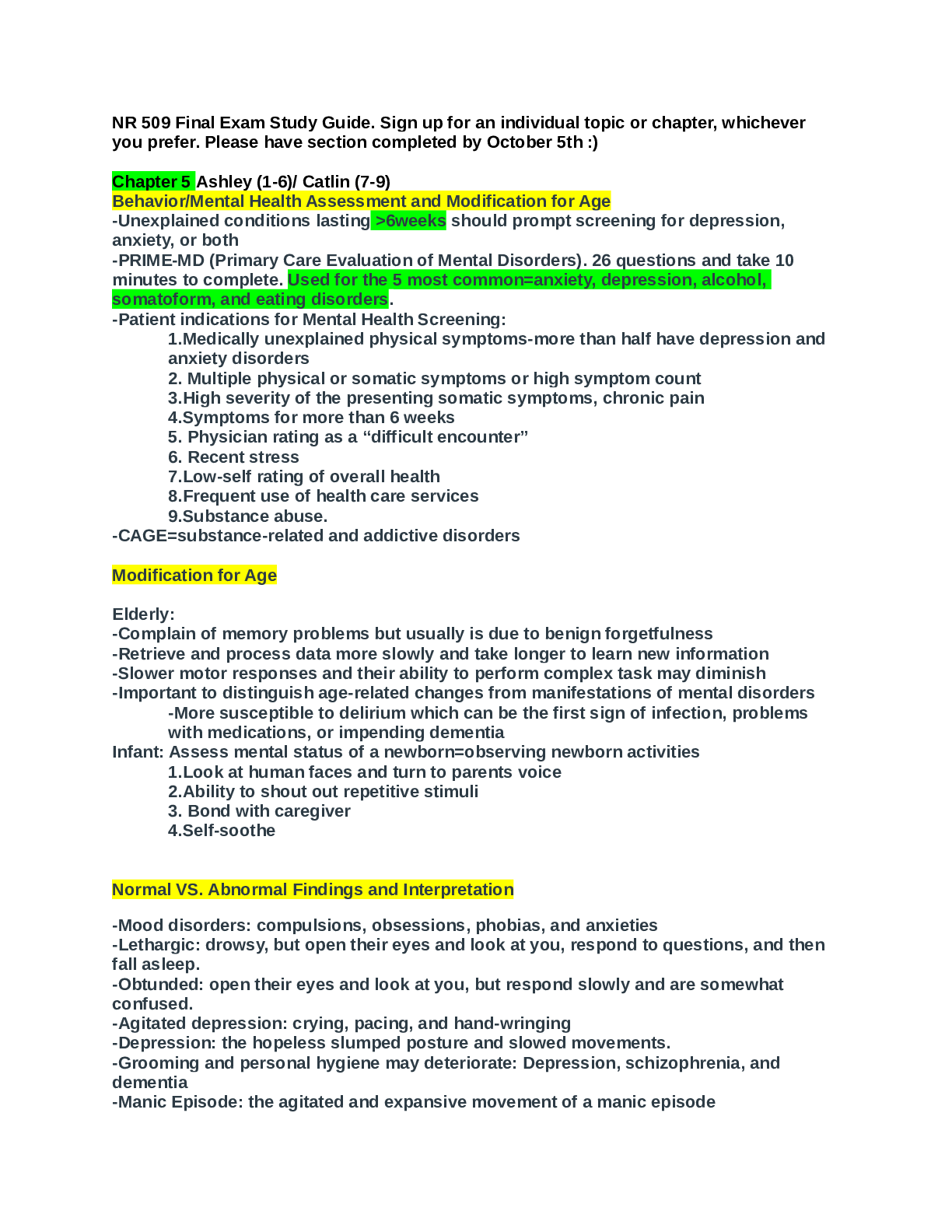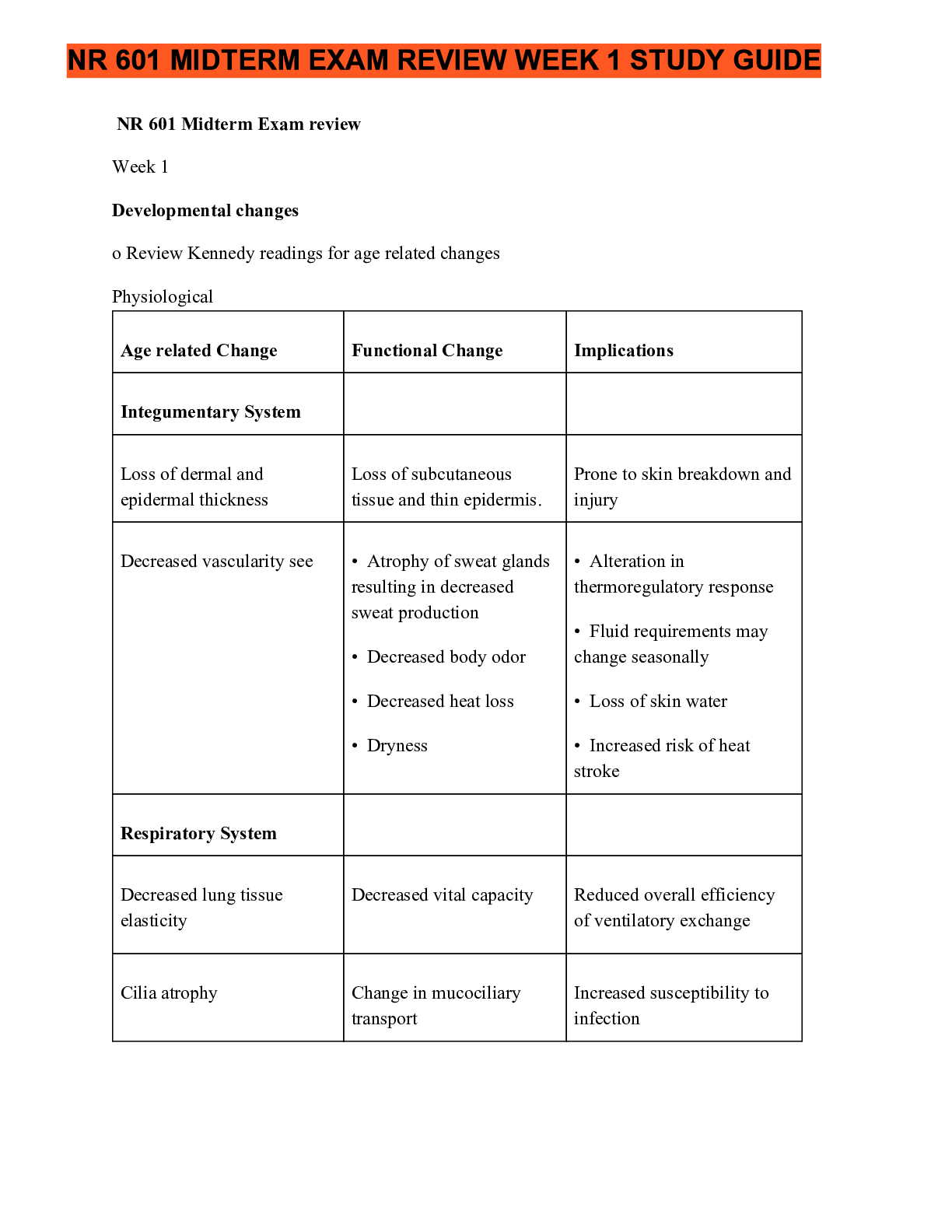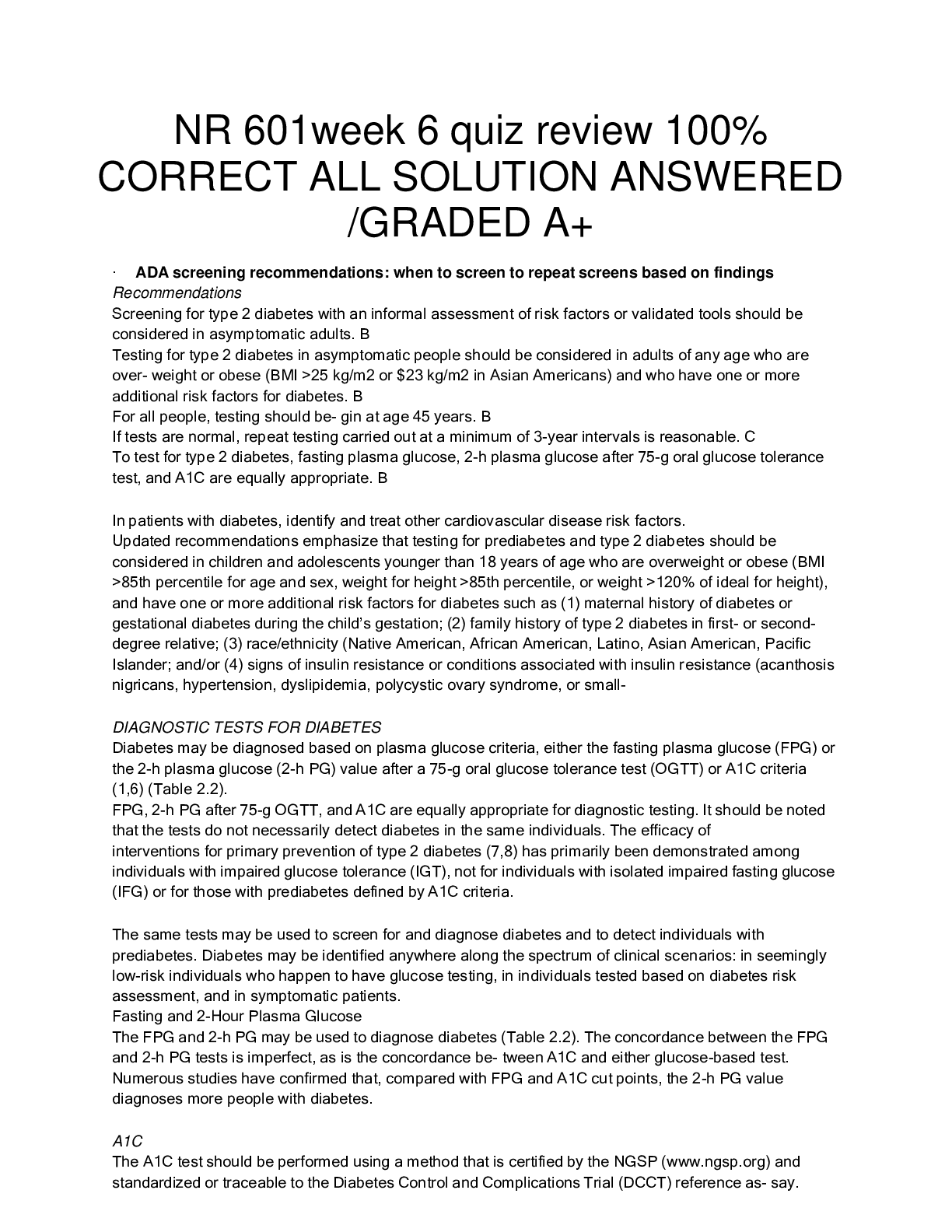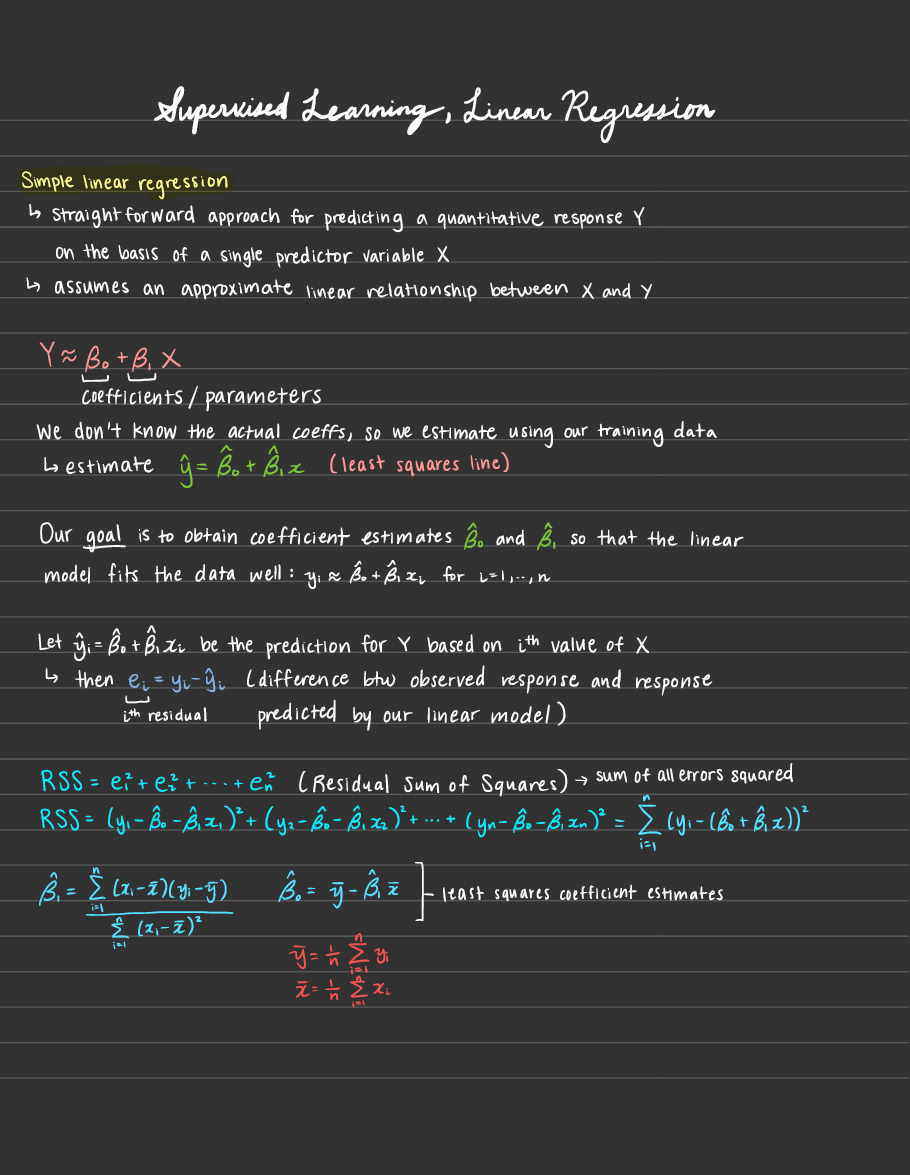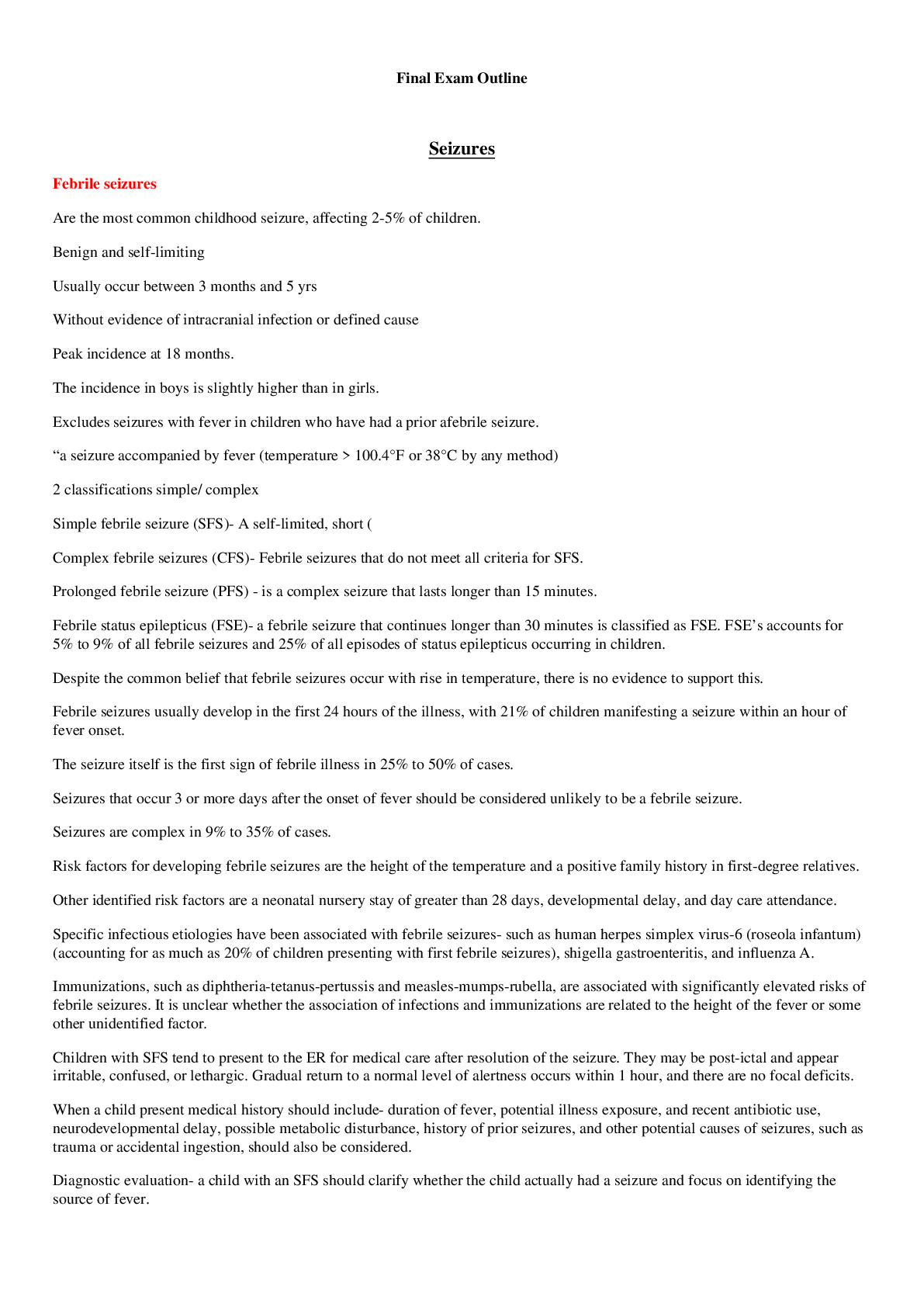*NURSING > EXAM REVIEW > Chamberlain College of NursingNR 602 NRWeek 8 - Final exam Outline -NEW (All)
Chamberlain College of NursingNR 602 NRWeek 8 - Final exam Outline -NEW
Document Content and Description Below
NR 601 Final exam review Weeks 5-8 content Week Topics 5 Dunphy: Chapter 58: Diabetes Mellitus p. 909-938 Kennedy: Chapter 14: Endocrine, Metabolic, and Nutritional Disorders (p.369- 3... 76) Obesity (p. 392-396) Glucose metabolism disorders Types of diabetes (prediabetes, type 1 and type 2) PreDmM = glucose intolerance, Islet cell–specific antibodies, Screening for prediabetes and DM should be considered in all individuals who are overweight or obese, regardless of age, and for all adults aged 45 years and older. Type I - severe insulin deficiency resulting from beta cell destruction, which produces hyperglycemia due to the altered metabolism of lipids, carbohydrates, and proteins Type II - abnormal secretion of insulin, resistance to the action of insulin in the target tissues, and/or an inadequate response at the level of the insulin receptor. Types of diabetes- Two types: Type 1 and Type 2- Improper function of the hormone insulin, secreted by the pancreas. Hyperglycemia is a hallmark sign of diabetes. Prediabetes: Impaired glucose tolerance (IGT) describes a prediabetic state of hyperglycemia where a 2-hour post-glucose load glycemic level is 140 to 199 mg/dL. Type 1 (insulin deficiency)- Presents mostly during childhood. Genetic predisposition plus some sort of environmental trigger. Results in an auto-immune disorder in which the immune system attacks the beta cells of the pancreas to prevent them from producing insulin (decreases production). Inhibits this first step in the insulin pathway. Type 2- Presents mostly during adulthood. Strongly associated with a genetic predisposition. Accompanied with other predisposing conditions, such as obesity or hypertension. Inability of these cells throughout the body to respond to insulin. The pancreas continues to secrete insulin. The cells throughout the body that are unable to adequately respond to it. Miscellaneous Drug-induced diabetes- caused by medications Most commonly occurs with a group of medications that are known as glucocorticoids (steroids) such as in asthma or chrons. Gestational diabetes Presentation: acute, subacute, and asymptomatic Acute: most severe presenting situation and can be life threatening for both type I and type II diabetes. very sick over a relatively short period of time, usually only a couple of days. S/S: nausea, vomiting, and abdominal pain leads to severe dehydration. Confusion or unconscious as a result. In type I diabetes, this is known as diabetic ketoacidosis. 30% of individuals with type I diabetes will initially present before diagnosis. DKA- acidotic due to the production of ketoacids Type 2 diabetes: 2% of individuals hyperosmolar nonketotic state- ketones are not produced. Can occur with either type I or type II diabetes [Show More]
Last updated: 2 years ago
Preview 1 out of 34 pages
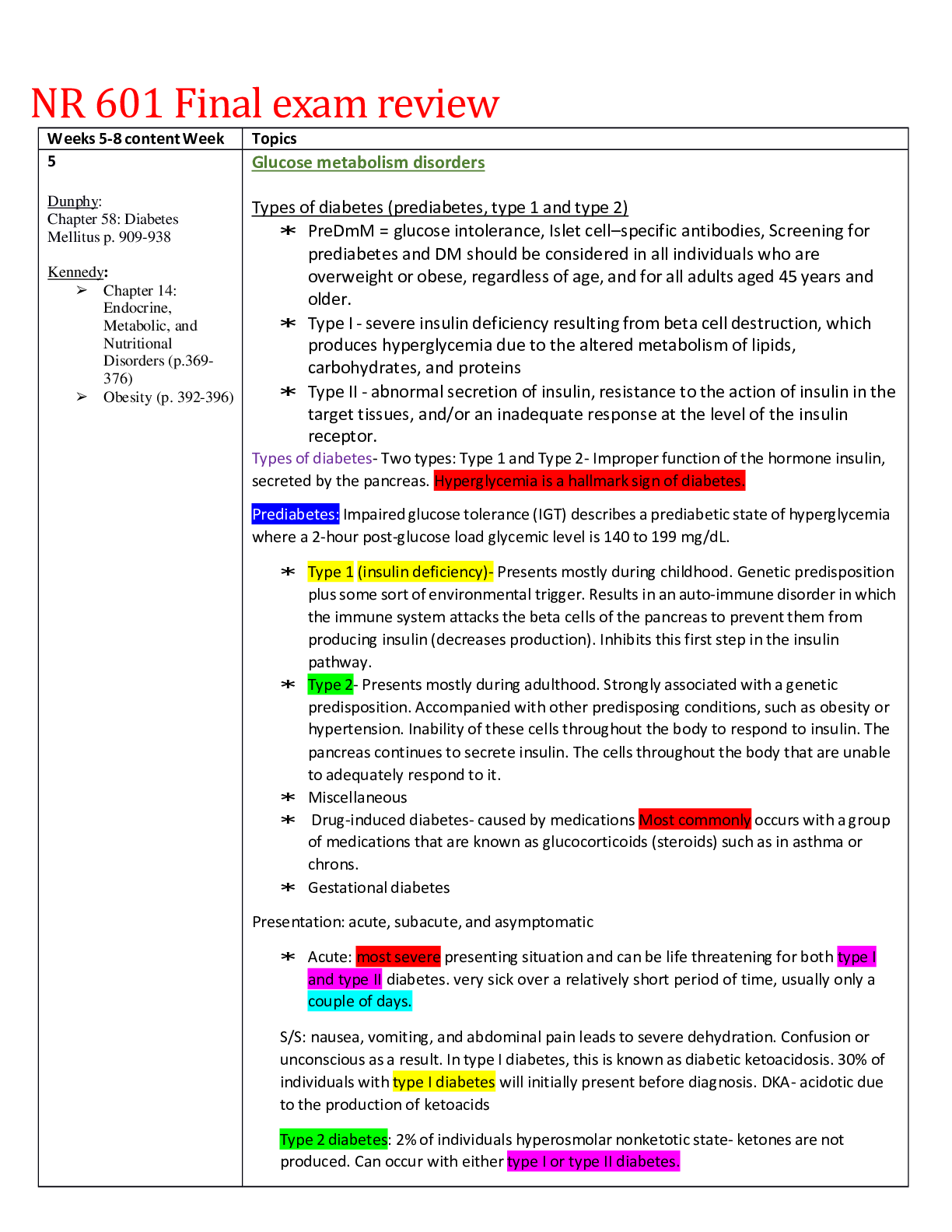
Buy this document to get the full access instantly
Instant Download Access after purchase
Buy NowInstant download
We Accept:

Reviews( 0 )
$15.00
Can't find what you want? Try our AI powered Search
Document information
Connected school, study & course
About the document
Uploaded On
Aug 30, 2021
Number of pages
34
Written in
Additional information
This document has been written for:
Uploaded
Aug 30, 2021
Downloads
0
Views
91


